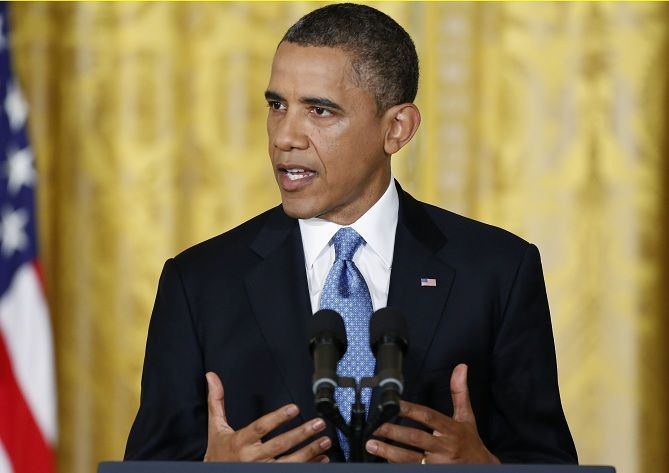State Of The Union 2013: How Will U.S. Compare To Other Nuclear States After Obama's Cuts?

U.S. President Barack Obama is expected to announce in his State of the Union address on Tuesday America’s willingness to significantly reduce its nuclear arsenal, by about a third, without affecting national security.
The New York Times reported Monday that Obama likely won’t be throwing out specific numbers, but that officials are reportedly seeking a cut that would decrease the cache of deployed warheads to a little more than 1,000.
The move would cut tens of billions of dollars in military spending at a time when lawmakers are discussing sequestration, or mandated cuts, as part of a plan to reduce the nation’s deficit. $1.2 trillion in sequester cuts from both defense and non-defense programs are expected to take place over the next 10 years. The sequester kicks in March 1, unless lawmakers agree otherwise.
If the U.S. reduced its arsenal, Russia would follow suit, because of a 2010 treaty between the two.
“It makes sense for both security and budget reasons,” said Tom Collina, research director at the Arms Control Association, or ACA, in Washington, D.C.
Collina explained that over the next decade the administration is slated to spend huge sums on modernizing its nuclear weapons infrastructure. However, with the drawdown, it could instead save between $40 billion and $50 billion.
“The real money comes from either building less delivery systems or delaying when you need to buy them,” Collina said, referring to the means -- such as missiles -- used to deliver nuclear warheads on their targets.
Some Republican lawmakers, however, may have a problem with this. They oppose cutting the U.S. nuclear arsenal for fears it would diminish the message of deterrence.
America’s nuclear arsenal includes approximately 5,113 nuclear warheads of which more than 1,700 are deployed. Retired Marine Corps Gen. James Cartwright, who led U.S. nuclear forces from 2004 to 2007, has said the U.S. doesn’t need a large nuclear force considering today’s threats.
Here’s how the nuclear arsenals of the other major nuclear powers compare to that of the U.S., according to data from the ACA:
- China: Fewer than 240 total warheads;
- France: Fewer than 300 operational warheads;
- Russia has approximately 1,499 deployed warheads. It is estimated that the country has more than 1,000 non-deployed strategic warheads and about 2,000 tactical nuclear warheads;
- The UK has fewer than 160 deployed strategic warheads and a stockpile of 225.
India and Pakistan each have a maximum of 100 according to estimates from other agencies, while Israel, which has never officially admitted to possessing nukes and has never made public its arsenal, may have up to several hundred, according to various estimates.
There have been concerns over Iran’s nuclear weapons capability for some time now, as the Middle Eastern country continues to accelerate its enrichment of uranium. Iran’s leadership has said such developments are only for peaceful uses, such as generating electricity. The U.S. and the international community have put in place sanctions to prevent Iran from acquiring nuclear weapons.
Iran doesn’t have any weapons at this time.
But according to Collina, fewer American nukes would be a positive development, when it comes to Iran. “No one can argue that the U.S. is leaving itself vulnerable to Iran threats,” Collina said. “[The reduction] gives the United States more moral authority to argue that Iran’s efforts should be contained.”
© Copyright IBTimes 2024. All rights reserved.





















